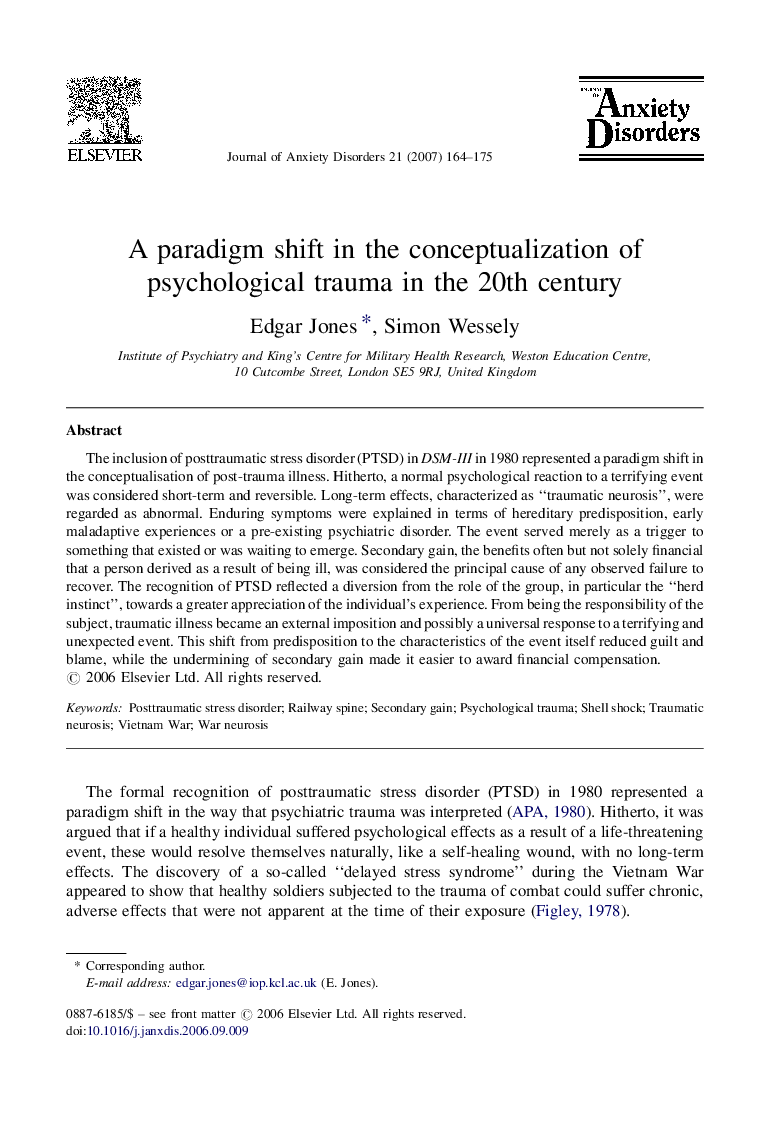| کد مقاله | کد نشریه | سال انتشار | مقاله انگلیسی | نسخه تمام متن |
|---|---|---|---|---|
| 909925 | 917321 | 2007 | 12 صفحه PDF | دانلود رایگان |

The inclusion of posttraumatic stress disorder (PTSD) in DSM-III in 1980 represented a paradigm shift in the conceptualisation of post-trauma illness. Hitherto, a normal psychological reaction to a terrifying event was considered short-term and reversible. Long-term effects, characterized as “traumatic neurosis”, were regarded as abnormal. Enduring symptoms were explained in terms of hereditary predisposition, early maladaptive experiences or a pre-existing psychiatric disorder. The event served merely as a trigger to something that existed or was waiting to emerge. Secondary gain, the benefits often but not solely financial that a person derived as a result of being ill, was considered the principal cause of any observed failure to recover. The recognition of PTSD reflected a diversion from the role of the group, in particular the “herd instinct”, towards a greater appreciation of the individual's experience. From being the responsibility of the subject, traumatic illness became an external imposition and possibly a universal response to a terrifying and unexpected event. This shift from predisposition to the characteristics of the event itself reduced guilt and blame, while the undermining of secondary gain made it easier to award financial compensation.
Journal: Journal of Anxiety Disorders - Volume 21, Issue 2, 2007, Pages 164–175